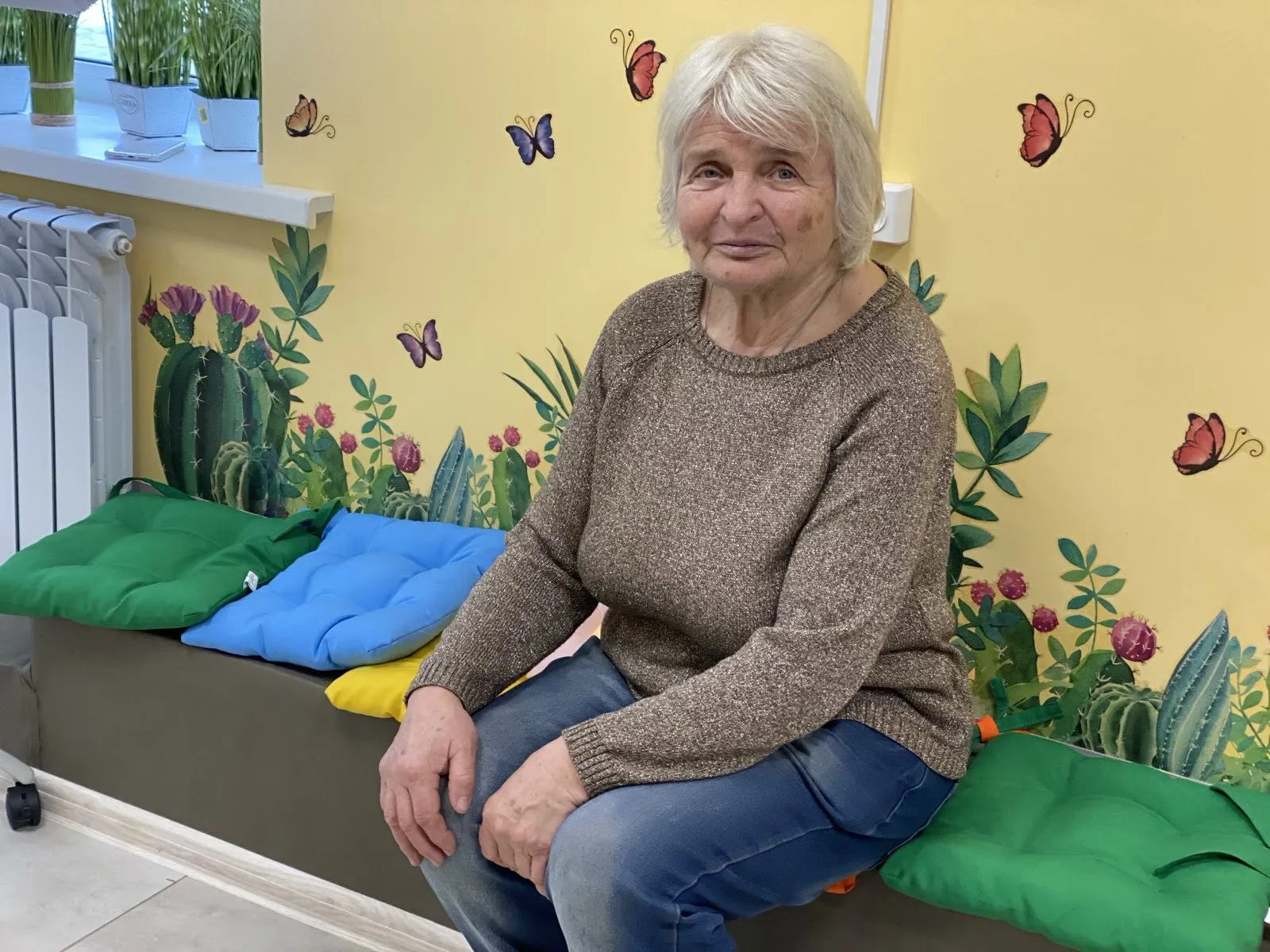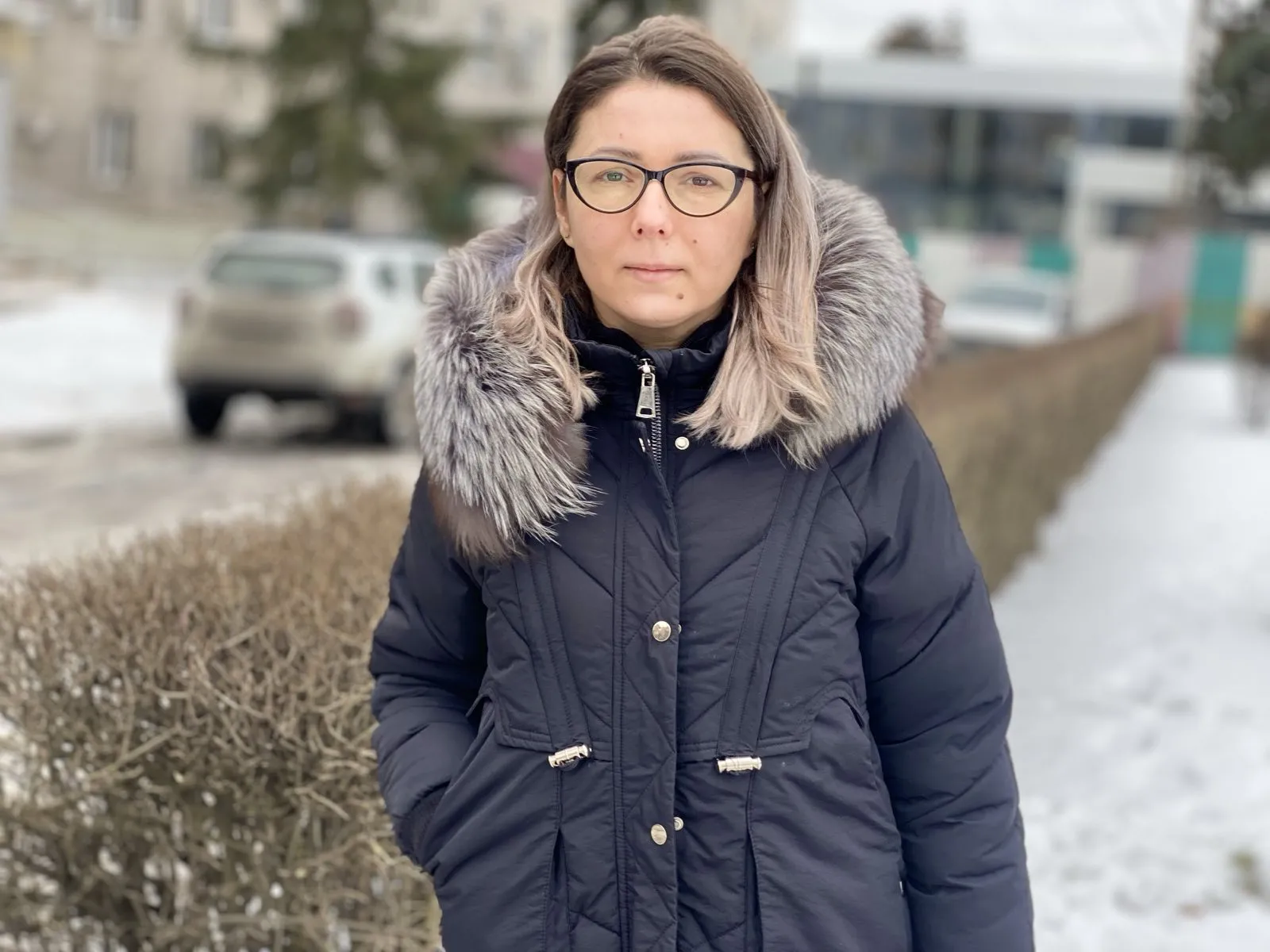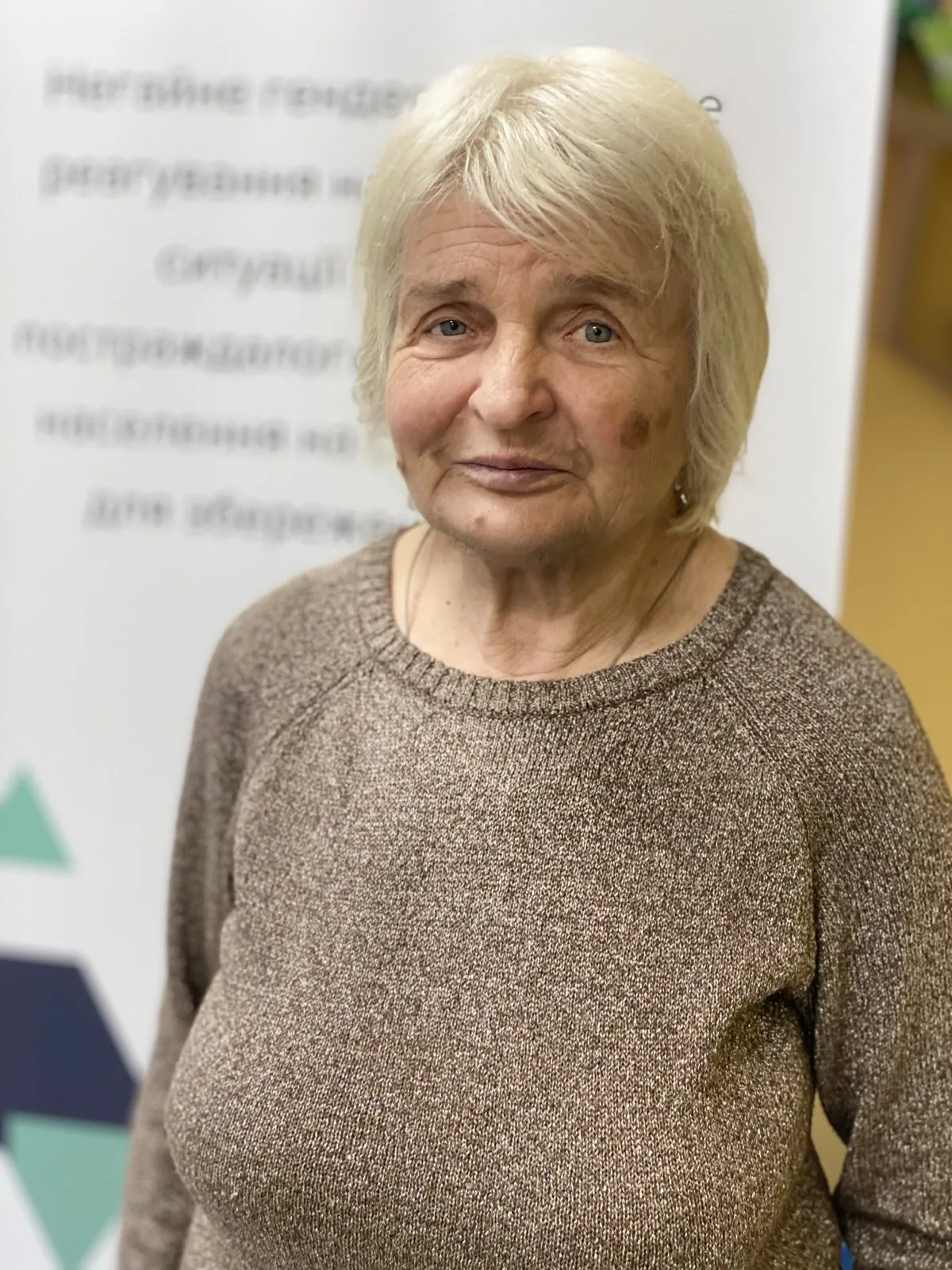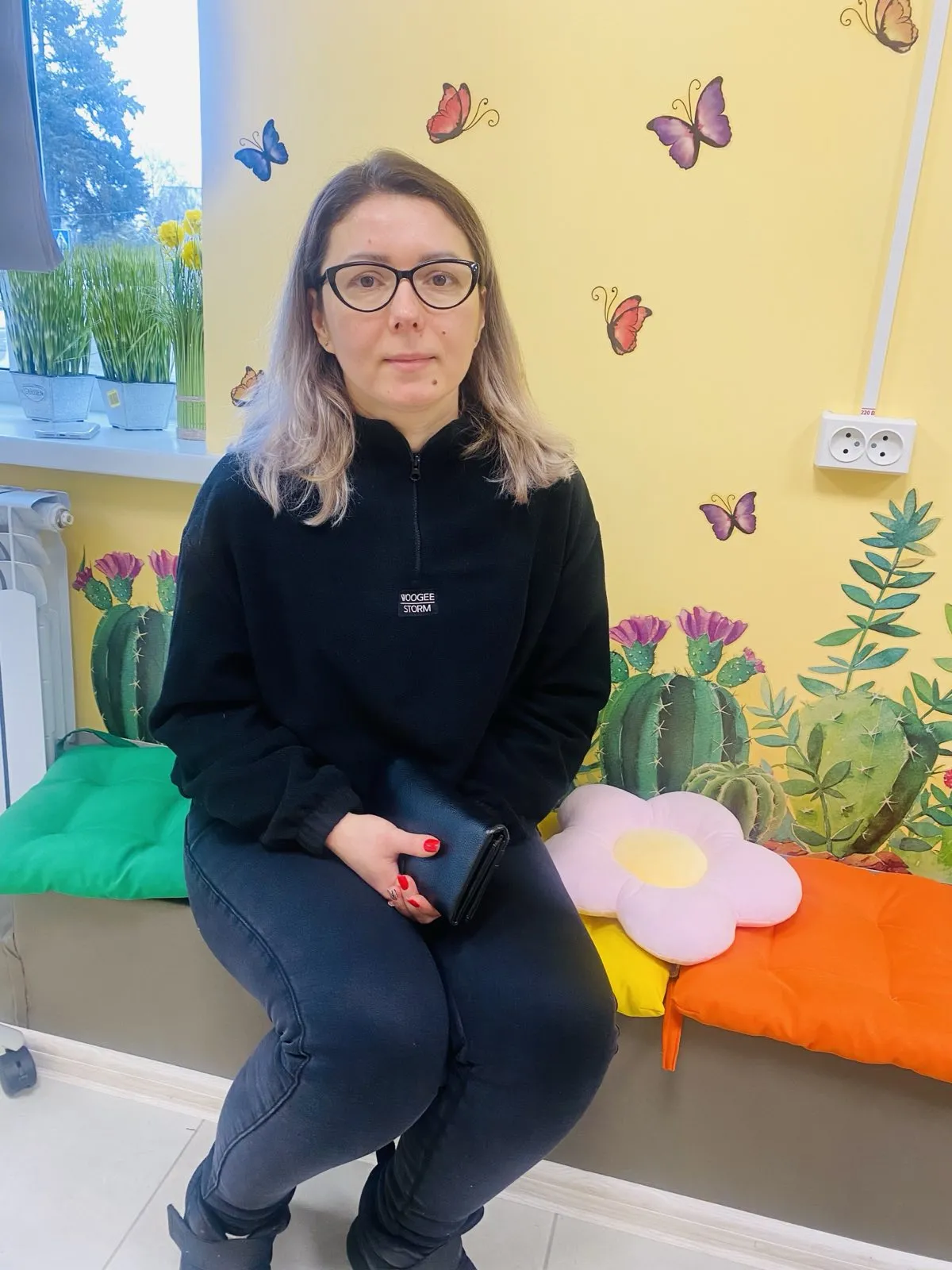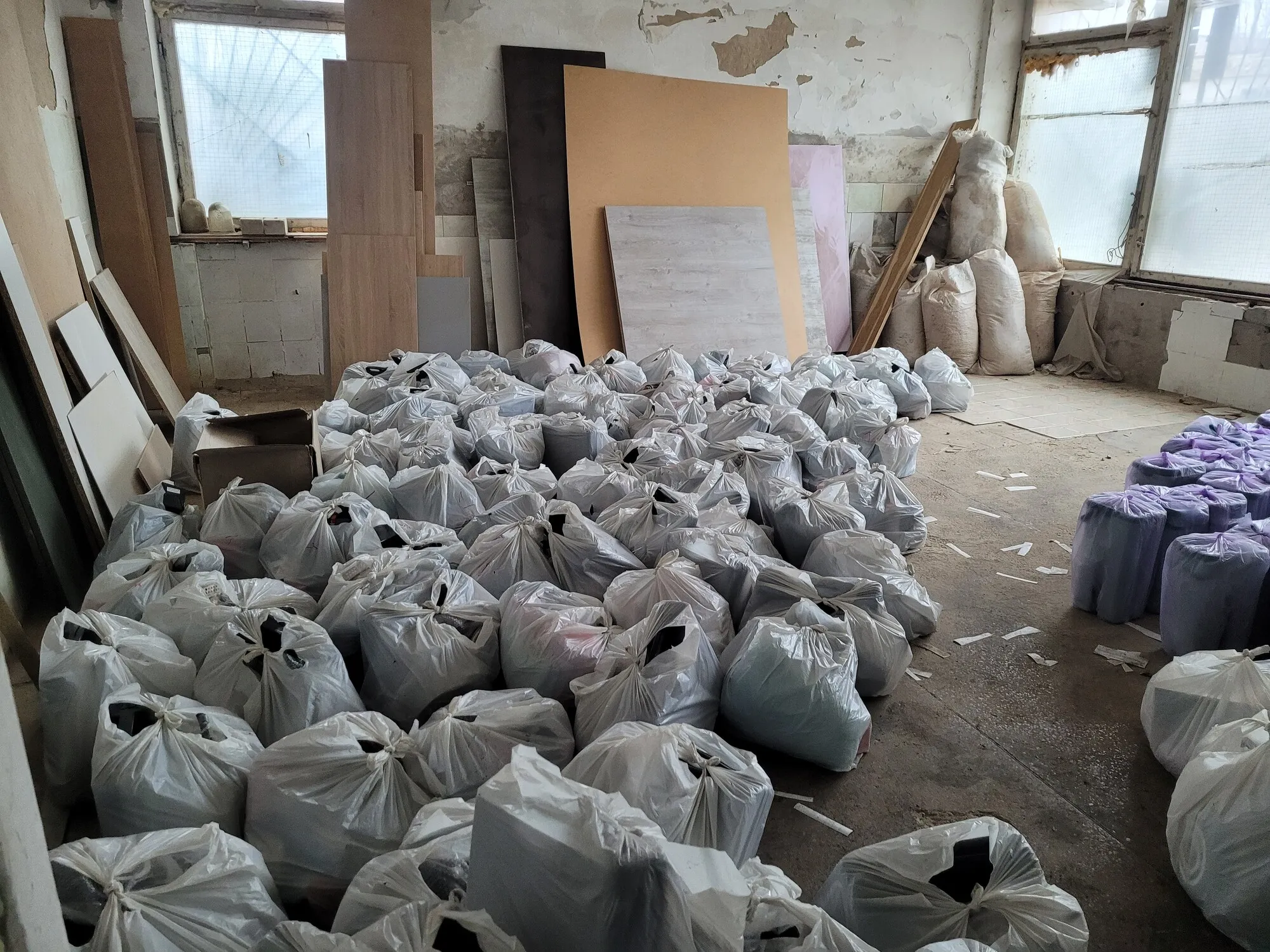Some members of the association have dogs that alert their owners when there are explosions. “They go completely mad; they run around in circles and bark wildly,” Lena says. “So, we take our cues from them and go find cover.”
The air strikes have increased since the new year started. “It is very scary,” Lena says. “We do not go to sleep before 2 a.m. anymore, because most of the time the missiles come before that. But not always. Two nights ago, the rockets came at 3 a.m. We were sleeping and then the whole bed jumped and shook. We then all ran into the corridor to get away from the windows.”
Now they experience explosions nearly every night.
“We really hate the nights,” Lena says, trailing off, finding it too difficult to continue. Sviatlana takes her hand and continues. “We are so afraid for our children, and we cannot leave, because it is too expensive, since we only have a small pension.”
Sviatlana’s pension is around $65 each month, while rent in the relatively safer western part of Ukraine is around $485 monthly for a single-room apartment.
Incomes are elusive
Many people with hearing impairment, Lena included, lost their jobs when the war escalated two years ago. She was a gardener on a farm and took care of the flowers.

